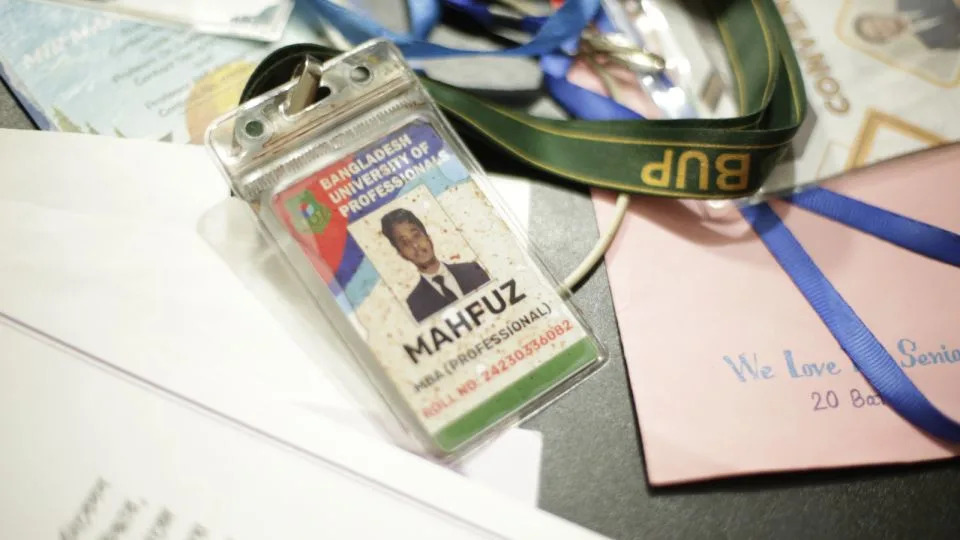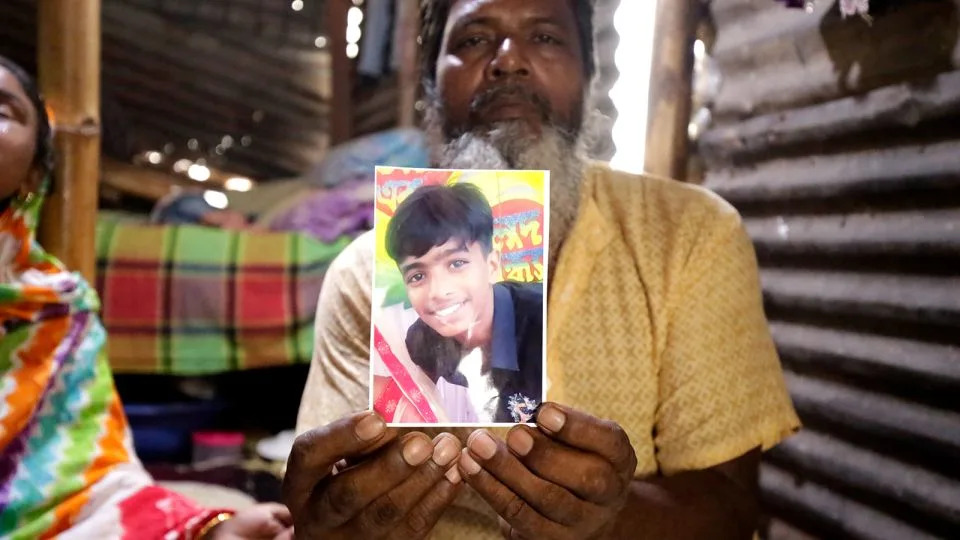Renowned anti-liberal Russian philosopher Alexander Dugin recently published an article in which he argues that Russia and China, along with countries from the so-called Global South, are moving toward "decoupling" from the West. "One might consider that 'decoupling' has been imposed on us by the West itself. But, more likely, we can see the secret workings of Providence in this. The example of the opening of the Olympic Games in Paris illustrates this clearly. The West banned Russia from participating in the Olympics. But instead of punishment, against the backdrop of that aesthetically monstrous parade of perverts and the pitiful scrambling of swimmers in waters filled with filth and toxic waste in the Seine, all this turned into something quite the opposite – an operation to save Russia from disgrace and humiliation," Dugin added.

(Source: Geopolitika.ru)
Following is Dugin's article:[1]
"'Decoupling' Means Something Directly Opposite To 'Globalization'"
"In the coming decades, the main and most frequently used concept will undoubtedly be the term 'decoupling.' The English word 'decoupling' literally means 'disconnection of a pair' and can refer to a wide range of phenomena – from physics to economics. In all cases, it refers to the breaking of the connection between two systems, especially when both depend on each other to a greater or lesser extent. There is no exact equivalent for translating this word into Russian, although размыкание (unfastening), расцепление (disengagement), and разрыв пары (pair disconnection) convey the meaning. However, it is preferable to retain the English term 'decoupling.'
"In a broad sense, at the level of global civilizational processes, 'decoupling' means something directly opposite to 'globalization.' The term 'globalization' is also English (of Latin origin). Globalization means the unification of all states and cultures according to rules and algorithms established in the West. 'To be global' means to be like the contemporary West, to accept its cultural values, its economic mechanisms, its technological solutions, its political institutions and protocols, its information systems, its aesthetic standards, and its ethical criteria as something universal, total – the only option – and obligatory. In practice, this means the 'coupling' of non-Western societies with the West and with each other, but always in such a way that Western rules and standards serve as the algorithm. Essentially, in such a unipolar globalization, there was a main center – the West – and all others. The West and the Rest, as S. Huntington put it. The Rest was supposed to connect to the West. This connection ensured integration into a single planetary global system, into the global 'Empire' of postmodernity with the metropolis located at the center of humanity, that is, in the West.
"Entering globalization, recognizing the legitimacy of supranational institutions – such as the WTO, WHO, IMF, World Bank, ICC, ECHR, and up to the world government, a prototype of which is the Trilateral Commission or the Davos Forum – was an act of system binding, expressed by the term 'coupling.' Between the collective West and any other country, culture, or civilization, a pair was formed, in which a certain hierarchy – leader/follower – was immediately established. The West played the role of master, the non-West the slave. Along this axis of 'coupling,' the entire system of world politics, economy, information, technology, industry, finance, and resources was formed. The West in this situation was the embodiment of the future – 'progress,' 'development,' 'evolution,' 'reforms,' while everyone else was supposed to connect to the West and follow it according to the logic of 'catch-up development.'"
"Globalization" Is A "Western-Centric Phenomenon"
"In the eyes of the globalists, the world was divided into three zones – the 'rich North' (essentially the West – the US and the EU, as well as Australia and Japan), the 'semi-peripheral countries' (primarily the fairly developed BRICS countries), and the 'poor South' (all others).
"China engaged in globalization in the early 1980s under Deng Xiaoping. Russia did so under much less favorable conditions in the early 1990s under Yeltsin. Gorbachev's reforms were also aimed at 'coupling' with the West ('a common European home'). Later, India actively joined this process. Each country 'coupled' with the West, which meant integrating into the globalization process.
"Globalization was and remains a fundamentally Western-centric phenomenon, and given that the US and globalist elites play the main role in it, it is quite logical to use English terms to describe it. Globalization was carried out through 'coupling,' and from there, everyone involved followed its rules and guidelines at all levels – both global and regional.
"The processes of globalization gained momentum starting from the late 1980s until they began to falter and stall in the 2000s. The most significant factor in this reversal of the globalization vector was Putin's policy, which initially aimed to integrate Russia into it (joining the WTO, etc.) but at the same time insisted on sovereignty, clearly contradicting the main directive of the globalists – moving towards de-sovereignization, de-nationalization, and the prospect of establishing a world government. Thus, Putin quickly distanced himself from the IMF and the World Bank, rightly noting that these institutions used 'coupling' in the interests of the West and often directly against Russia's interests."
"We Must Consistently And Fundamentally Reject The Universality Of Western Norms"
"Simultaneously, China, which derived maximum benefit from globalization by leveraging its involvement in the global economy, financial system, and especially the offshoring of industries relocated by the globalists from Western countries to Southeast Asia (where labor costs were significantly lower), also reached the limits of positive outcomes from this strategy. Moreover, China initially took care to maintain sovereignty in certain areas – rejecting Western-controlled liberal democracy (events in Tiananmen Square) and establishing full national control over the internet and the digital sphere. This became especially evident under Xi Jinping, who openly declared China's course not towards Western-centric globalism but towards its own model of world politics based on multipolarity.
"Putin also firmly established the course towards multipolarity, and other semi-peripheral countries, particularly the BRICS nations, increasingly leaned towards this model. Relations between Russia and the West especially deteriorated with the onset of the Special Military Operation (SMO) in Ukraine, after which the West rapidly began cutting ties with Moscow – at the economic level (sanctions), political level (an unprecedented wave of Russophobia), energy level (explosions of gas pipelines in the Baltic Sea), technological exchange level (bans on technology supplies to Russia), sports (a series of contrived disqualifications of Russian athletes and the ban on participation in the Olympics), and so on. In other words, in response to the SMO, that is, Putin's full declaration of Russia's sovereignty, the West initiated 'decoupling.'
"At this point, the term 'decoupling' acquires its full, profound meaning. It is not just a severance of ties; it is a new mode of operation for two systems, each of which is now supposed to be completely independent of the other. For the US and the EU, 'decoupling' appears to be a punishment for Russia's 'misbehavior,' that is, its forced detachment from development processes and tools. For Russia, on the contrary, this forced autarky, largely mitigated by maintaining and even developing contacts with non-Western countries, looks like the next decisive step towards restoring full geopolitical sovereignty, significantly undermined and almost completely lost from the late 1980s to the early 1990s. Who exactly initiated the 'decoupling,' that is, the cutting of Russia out of the Western-centric unipolar globalization structure, is now difficult to say definitively. Formally, Russia started the SMO, but covertly, the West actively pushed it towards this and provoked it through its Ukrainian proxy tools.
"In any case, the fact remains: Russia has entered the process of 'decoupling' from the West and its promoted globalism. And this is just the beginning. The inevitable stages are still ahead.
"First and foremost, we must consistently and fundamentally reject the universality of Western norms – in economics, politics, education, technology, culture, art, information, ethics, and so on. 'Decoupling' means not just a deterioration or even a severance of relations. It goes much deeper. It involves revisiting the basic civilizational attitudes formed in Russia long before the 20th century, in which the West was taken as a model, and its historical stages of development as an unquestionable template for all other peoples and civilizations, including our country. To some extent, the last two centuries of Romanov rule, the Soviet period (with a critique of capitalism), and especially the era of liberal reforms from the early 1990s to February 2022 were all Western-centric. For the last few centuries, Russia has been engaged in 'coupling,' not questioning the universality of the Western path of development. Yes, the communists believed that capitalism needed to be overcome, but only after it was built, based on the 'objective necessity' of changing formations. Even the prospects of world revolution were seen by Trotsky and Lenin as a process of 'coupling,' 'internationalism,' a linking with the West, albeit for the purpose of forming a single global proletariat and escalating its struggle. Under Stalin, the Soviet Union essentially became a separate state-civilization, but only by deviating from Marxist orthodoxy and relying on its own strengths and the unique creative genius of its people.
"When the energy and practices of Stalinism were exhausted, the Soviet Union once again moved toward the West along the logic of 'coupling' and predictably fell apart. The liberal reforms of the 1990s became a new leap towards 'coupling,' hence the Atlanticism and pro-Western stance of the elites of that era. Even under Putin in the early stage, Russia tried to maintain 'coupling' at all costs, until it came into direct contradiction with Putin's even firmer resolve to strengthen the state's sovereignty (which would have been practically impossible under continued globalization – both in theory and in practice)."
"By Cutting Us Off From It, The West Essentially Facilitates Our Recovery, Our Resurrection"
"Today, Russia is consciously, firmly, and irreversibly entering into 'decoupling.' Now it is clear why we agreed to use this term initially in its English version. 'Coupling' is integration with the West, recognizing its structures, values, and technologies as universal models, and the systemic dependence on it, as well as striving to be part of it, to catch up with it, to follow it – at worst, it involves replacing what the West has chosen to exclude us from. 'Decoupling,' on the contrary, means rejecting all these principles, relying not only on our own strengths but also on our own values, our own identity, our own history, our own spirit. Of course, we have yet to fully grasp the depth of this, as Westernization in Russia, the history of our 'coupling,' has lasted for several centuries. With varying success, the penetration of the West into our society has been continuous and intrusive. The West has long been not only outside but also inside us. Therefore, 'decoupling' will be very difficult. It includes complex operations to 'expel all Western influences from society.' Moreover, the depth of such cleansing is much more serious than even the criticism of the bourgeois system during the Soviet era. At that time, it was about two competing lines of development within a single (by default Western!) civilization – capitalist and socialist, but the second – socialist – model was also built on the criteria of Western society's development, on Western teachings and theories, on Western methods of calculation and assessment, on the Western scale of development levels, and so on. Liberals and communists are united in the understanding that there can be only one civilization, and they also agree that this is Western civilization – its cycles, its formations, its phases of development.
"A century before, Russian Slavophiles went much further and called for a systemic revision, a rejection of Westernization, and a turn to their own Russian roots. In essence, this was the start of our 'decoupling.' It is unfortunate that this trend, which was quite popular in Russia in the 19th and early 20th centuries, did not prevail. Now we simply must complete what the Slavophiles, followed by the Russian Eurasianists, started. We need to overcome the West's claim to universality, globalism, and uniqueness.
"One might consider that 'decoupling' has been imposed on us by the West itself. But, more likely, we can see the secret workings of Providence in this. The example of the opening of the Olympic Games in Paris illustrates this clearly. The West banned Russia from participating in the Olympics. But instead of punishment, against the backdrop of that aesthetically monstrous parade of perverts and the pitiful scrambling of swimmers in waters filled with filth and toxic waste in the Seine, all this turned into something quite the opposite – an operation to save Russia from disgrace and humiliation. The images of 'decoupling' in sports vividly illustrate its healing nature. By cutting us off from it, the West essentially facilitates our recovery, our resurrection. Not allowed into the center of degeneration and shameless sin, Russia finds itself at a distance, at a remove. We recognize this today as Providence. So it is."
"We Are Not Alone On The Path Of Decoupling"
"If we now look at the rest of the world, we will immediately notice that we are not alone on the path of 'decoupling.' All those peoples and civilizations inclined towards a multipolar world architecture are entering the same process.
"Recently, in a conversation with a major Chinese oligarch and investor, I heard reflections on 'decoupling' from him personally. With full confidence, my interlocutor stated that the 'decoupling' of China from the United States is inevitable – and has already begun. The only issue is that the West wants to conduct it on terms favorable to itself, while China aims for the opposite, i.e., its own benefit. Until the last moment, China had successfully extracted positive results from globalization, but now this requires a revision and reliance on its own model, which China inextricably links with the success of integrating Greater Eurasia (in conjunction with Russia) and implementing the 'One Belt, One Road' project. According to the influential Chinese interlocutor, it is precisely 'decoupling' that will define the essence of relations between China and the West in the coming decades.
"India is also increasingly and firmly choosing multipolarity. While a complete 'decoupling' from the West is not yet being discussed, Prime Minister Narendra Modi recently openly declared a course towards the 'decolonization of the Indian mind.' This means that in this giant country, a state-civilization (Bharat), at least in the realm of ideas (which is paramount!), the course is set for intellectual 'decoupling.' Western forms of thought, philosophy, and culture are no longer accepted by the Indians of the new era as unconditional models. Especially since the memories of the horrors of colonization and subjugation by the British are still alive. After all, colonization was also a form of 'coupling,' i.e., 'modernization' and 'Westernization' (hence it was supported by Marx).
"It is evident that a full-fledged 'decoupling' is also occurring in the Islamic world. Against the Western proxy in the Middle East – Israel – Palestinians and Shiite Muslims in the region are currently waging a real war. The stark contrast between contemporary Western values and norms and those of Islamic religion and culture has long been a leitmotif of the anti-Western policies of Islamic societies. The disgraceful parade of perverts at the opening of the Olympics in Paris only added fuel to the fire. Notably, the most severe reaction to the blasphemous portrayal of Christ came from the authorities of Islamic Iran. Islam is clearly oriented towards 'decoupling,' and this is irreversible."
"As We Detach From The Global West, We Face The Need To Restore, Revive, And Reaffirm Our Own Values"
"In certain sectors, these same processes are emerging in other civilizations as well – in the new wave of decolonization of African peoples and the policies of many Latin American countries. The more they are drawn into the processes of multipolarity and the closer they get to the BRICS bloc, the more acute the issue of 'decoupling' becomes within these societies.
"Finally, we can observe that the desire to retreat within one's borders is increasingly becoming manifest in the West itself. Right-wing populists in Europe and Trump supporters in the United States are openly advocating for 'Fortress Europe' and 'Fortress America,' that is, for 'decoupling' from non-Western societies – against immigration flows, the dilution of identity, and de-sovereignization. Even under Biden, a committed globalist and staunch supporter of maintaining unipolarity, we see some unequivocal moves towards protectionist measures. The West is starting to close itself off, embarking on the path of 'decoupling.'
"Thus, we began with the assertion that the word 'decoupling' will be key for the coming decades. This is evident, but few yet realize how deep this process is and what intellectual, philosophical, political, organizational, social, and cultural efforts it will require from all humanity – our societies, countries, and peoples. As we detach from the Global West, we face the need to restore, revive, and reaffirm our own values, traditions, cultures, principles, beliefs, customs, and foundations. So far, we are only taking the first steps in this direction."
[1] Geopolitika.ru/en/article/decoupling?utm_referrer=https%3a%2f%2fwww.geopolitika.ru%2fen%3futm_referrer%3dhttps%253a%252f%252fwww.google.com%252f, August 9, 2024.











